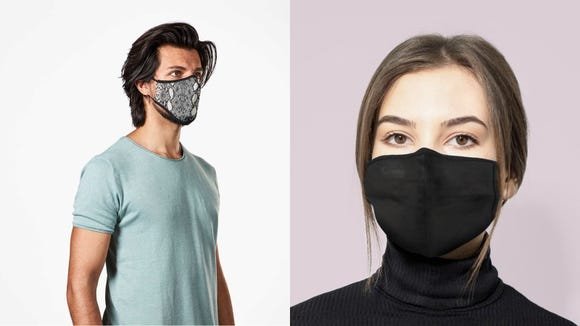Rules for Facemasks or Face Coverings in UK

Wearing a face covering will become mandatory in shops and supermarkets in England from 24 July. They are already compulsory in Scotland - but different rules apply across the UK.
It will be compulsory to wear a face covering in shops in England from Friday 24 July.
However, the rules won't apply to shop workers, government minister George Eustice told.
Those who fail to wear a mask will face a fine of up to £100. This will be reduced to £50 if people pay within 14 days.
The rules will be enforced by the police, rather than shop workers. The National Police Chiefs' Council says guidance will be issued to officers once the details of the new legislation are known.
People also won't be required to wear a covering in places where it's not practical - such as in a pub, cafe or restaurant - according to Mr Eustice. Children under 11 and those with certain disabilities will be exempt.
In Scotland, it's been a requirement to wear face coverings in shops since 10 July. Anyone not wearing one can be fined £60 fine (reduced to £30 if paid within 28 days) for a first offence.
People with certain medical conditions or disabilities, and children under five are exempt in Scotland.
Shop staff do not have to wear them, but it is "strongly recommended" in the guidance that they do.
Since mid-May the public in England have been advised to wear face coverings in enclosed public spaces, such as supermarkets, where it can be difficult to follow social distancing rules.
Prime Minister Boris Johnson says there is growing evidence that wearing them helps protect individuals and those around them from the virus.
Making it mandatory sends a stronger signal to people about their value.
Since 15 June, anyone travelling by bus, train, ferry or plane in England must wear a face covering.
Some passengers are exempt from the rules including:
- Children under 11
- People with disabilities
- Those with breathing difficulties
- Anyone travelling with someone who relies on lip reading
If it is reasonably necessary for you to eat or drink, you can remove the face covering to do so.
People can be refused travel if they don't follow the rules, and can be fined as a last resort.
Public transport excludes cruise ships, school transport, taxis and private hire vehicles. However, ride-sharing company Uber has made face coverings compulsory.
In Scotland, it is also compulsory to wear face coverings on all public transport.
Coverings will also be made mandatory on public transport in Wales from 27 July. These coverings should be three layers thick. It's also recommended that coverings are worn whenever social distancing is not possible.
The wearing of face coverings on most buses, trains and ferries became mandatory in Northern Ireland on 10 July.















































